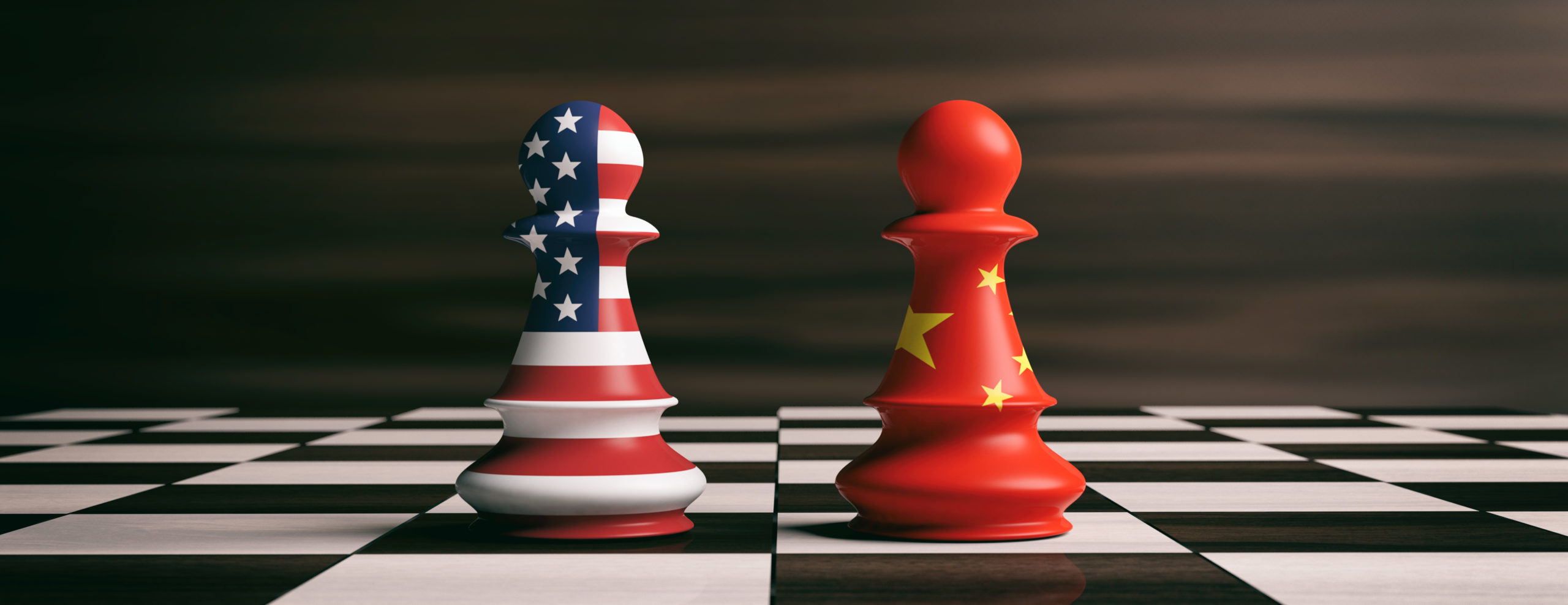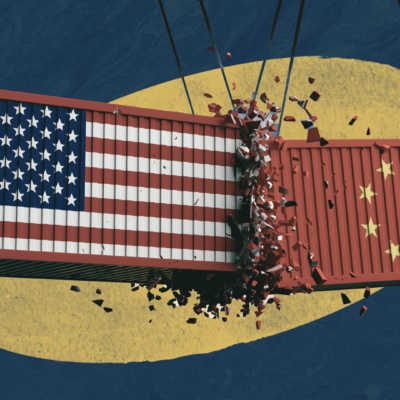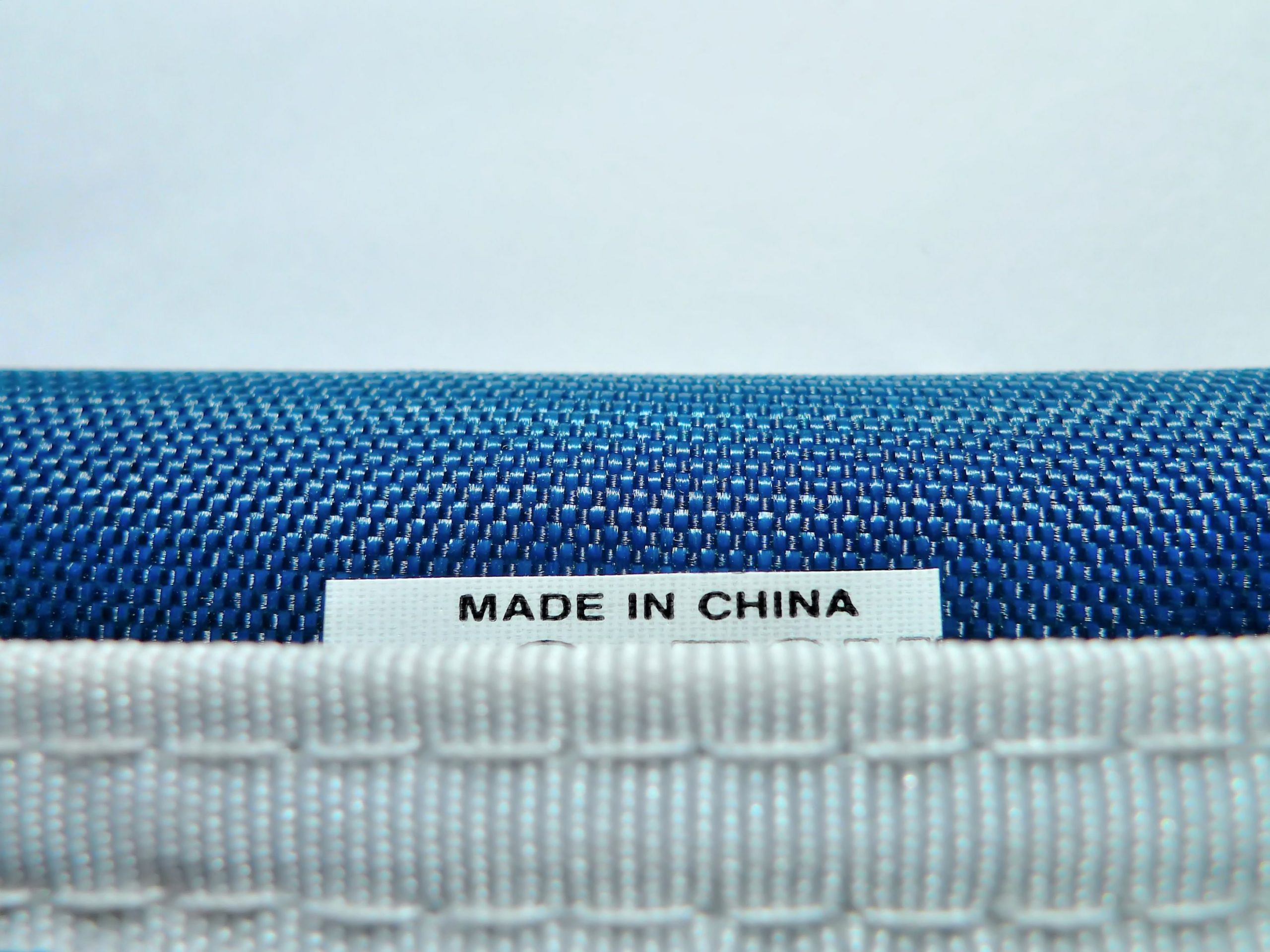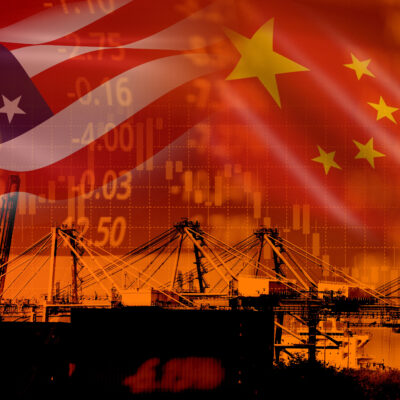

RECOMMENDED READING
Not without reason do China critics tend to observe a rival across the Pacific strong everywhere the US is weak, especially under the sway of coronavirus. For most on the Right, the focus of such criticism centers around ideology: if only the Chinese weren’t communist, we wouldn’t find ourselves in this mess. Some anti-communists take a more globalist bent (“true capitalistic democratization hasn’t been tried”), others a more nationalist one (“America must once again defeat an evil empire”). Despite the conceptual punch of these thought vectors, the situation on the ground grows increasingly complicated. A surefooted analysis of the geopolitics of China must pay close attention to the relationship between Chinese thought and technology, upon which much hangs in the balance.
- Communism ain’t what it used to be. An odd (to Western eyes) dynamic is unfolding where the more Chinese communism becomes in China the more aggressively communist the Chinese regime becomes. Western communism must be understood in light of its origins in the imagination, expressed plainly in the post-Protestant writings of Friedrich Engels. With devout, well-off bourgeois parents funding him, Engels sat at home dreaming what he envisioned to be the ultimate in expertly ethical dreams and (along with Marx, also the beneficiary of Engels subsidies) broadcasting them out to the world for memetic adoption by the masses. As distorted as the message may have become under Soviet domination, the essence of Western communism is the idea that the whole world can be purified by equally emancipating the imaginations of all. This is gibberish in China, dangerous fantasy of the sort China has long labored to keep at bay. It would appear today that Chinese communism now offers a form of collectivism that earns the mandate of heaven by rooting unity in memory, not imagination. As the Chinese philosopher of technology Yuk Hui explains, “dao, or the ethereal life force that circulates all things… and qi, which means tool or utensil… the soul and the machine, so to speak — constitute an inseparable unity. Throughout Chinese history, the understood unity of dao and qi constituted the morality and form of life proper to each successive epoch. This unity has both motivated and constrained the development of technology in China compared to the West, where technology has been driven by instrumental reason through which tools are fashioned as a means to overcome rather than to harmonize with nature.” Western communism sees technology as the means by which pure imagination will be liberated from the limits, inequalities, corruptions, and injustices of nature. Chinese communism sees the harmonization of human and machine memory as the one path toward the socio-moral rectitude that constitutes right order.
- China’s runway is short. In Western eyes China’s headlong rush toward “Orwellianism” betokens a familiar tale of totalitarian ideology run amok. In China the sensibility is different. After Mao’s eradication of civic morality and Deng’s reconstitution of Chinese society on an unprecedented foundation of material plenty, the main problem in domestic Chinese statecraft concerned the immorality or amorality of the people. Vast population transfers to the mega-metropolitan landscape encouraged a belief that ultimately only money mattered and getting rich represented the peak of personal achievement. In the absence of habits and norms of not only self-government but common decency (respecting other’s place in line, returning lost wallets, helping the injured in roadside accidents), the demands of Chinese individually and collectively centered around ever-increasing standards of living and showers of plenty that were already taxing the Chinese system even before Trump at long last pushed back. Chinese leaders had clear reason to fear a perfect storm of forces conducing to social chaos, radical disharmony, and ultimately regime collapse. In a blistering period of statecraft, China moved to wipe out Western (Muslim) influence in Xinjiang and Western (secular) influence online, migrating as much of its population as possible into state-controlled and state-censored apps and platforms and implementing a comprehensive system of social credit backed with facial recognition technology. Attributing these moves to totalitarianism or Orwellianism in the Western twentieth-century mold misses out on Chinese perceptions of Chinese problems. The lurch into technological “repression” illustrates a tremendous urgency on the part of policymakers to achieve liftoff in harmonizing human and machine memory before the runway of opportunity runs out and the uncontrollable Western imagination once again swamps and disorders the country.
- Beijing is willing to incur costs. In its rush to lock in its core policy objectives, the Chinese leadership, which is likely considerably more divided than Western analysts readily recognize, appears prepared to take some lumps pursuant to the sense that the perfect is the enemy of the good. China’s relationship with the Vatican, for instance, is delicate and important. China clearly sees Catholicism as the only strain of Western religion ordered well enough to tolerate in its territory. Relations with the Vatican have been slowly repaired in recent years, a significant issue when over 10 million Chinese count themselves Catholic, although some associate more closely with Chinese-chosen bishops and others with the Pope. But now, on the threshold of new talks to reaffirm and renew the latest negotiated agreement on ecclesiastical authority in Catholic China, it appears that state-sponsored Chinese hackers have attacked the Vatican, a clear violation of trust. Similarly hostile decisions have defined Chinese policy in the coronavirus era, from incursions into contested and foreign territory along its southern flank to ever tighter crackdowns in Hong Kong. Partly these actions stem from the pressure of rising nationalism in China: for one faction, Xi is not nationalist enough! Partly they stem from a sense of time running short. Partly they stem from the simple side effects of scrambling to do many things well enough at once. Altogether, they show that what appears to be imprudence reflects a strategic determination to pay a premium to achieve core goals.
- American sensibilities are increasingly divided. When Trump almost singlehandedly flipped established American attitudes toward China, inspiring a more confrontational and defensive approach, it looked as if both Right and Left were set to stay more hawkish toward Beijing until some major shift in the strategic picture transpired. But now both Left and Right are growing divided on the China issue. Globalists on each end of the spectrum have redoubled their faith that there can’t be one world (led by the West) unless China is included in that world, whatever price is exacted on common Western people. But some radicals on the Left and reactionaries on the Right are also becoming less hostile to China. They see in China a model of vigor and unity that contrasts in an unflattering way with a tarnished, enfeebled America. Yet other radicals and reactionaries see in China the opposite, a realm of venal capitalists or of debased “bugmen.” It is not at all clear what vision of China might prevail after Trump or even in a second Trump term. Policymakers on the Right have a particular opportunity to carefully calibrate an approach to Beijing, with whatever mix of bellicosity and conciliation, that benefits from a full (or fuller) understanding of how China thinks and why. But there is no way to eliminate risk. Our policy approach to the problems of technology and philosophy is still up for grabs, and so long as the American Left embraces patterns of thinking about that approach consistent with Friedrich Engels, the more US-China relations will be poisoned by a dangerous and protracted clash of communisms.
Recommended Reading
Only Trump Could Confront China
The inside story of the trade negotiation that changed the world
China and Civic Piety
The Chinese Communist Party’s efforts to eradicate the Uighur Muslim population in favor of the Han majority are horrifying. Programmatic abortions and sterilizations, slave labor, and “re-education” camps recall atrocities of the past. At the same time, the CCP’s ambitions for Hong Kong outrage westerners committed to liberty and the rule of law. And its record for the treatment of prisoners and religious dissidents is miserable.
Halting Investment in China
Oren Cass discusses why America must disentangle from China to protect its market from subversion by the CCP.













